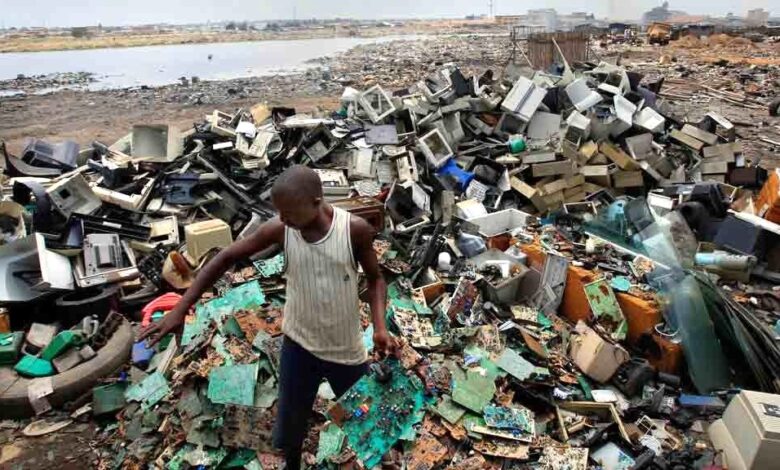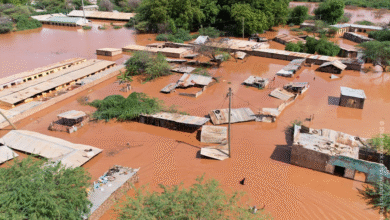Traceability in e-waste management key to community health, environmental protection

Recyclers and refurbishers within Ghana’s e-waste management sector are calling for improved efforts to ensure traceability of electronic waste (e-waste) in order to safeguard public health and the environment.
Although the Hazardous and Electronic Waste Control and Management Act, 2016 (Act 917) regulates the sector, stakeholders have noted that the collection, packaging, dismantling, and disposal of e-waste remain largely informal, undermining the effectiveness of traceability mechanisms.
At the Climate Talks grand finale, held at Electro Recycling Ghana Limited in Accra, Madam Vivian Ahiayibor, Managing Director of City Waste Recycling Ltd, highlighted the ongoing issue of global e-waste trafficking, particularly to Ghana. She emphasized that these backlogs are often difficult for the state to manage.
The forum, which brought together industry experts, policymakers, and stakeholders, focused on the theme “Trash to Tech: Upcycling E-Waste for a Circular Economy.” It was organized by the German Embassy in Accra, in collaboration with the Ghana Broadcasting Corporation.
Madam Ahiayibor stressed that transparency in recycling would allow better tracking of where e-waste materials originate, what they consist of, and how they can be reused. “Transparency and e-waste traceability help companies comply with Environmental, Social, and Governance (ESG) guidelines, which are essential for addressing climate change and promoting sustainability,” she explained.
Mr. Ebenezer Appah Sampong, CEO of Eco Solutions Industries, called for the necessary infrastructure to improve e-waste collection and traceability. He suggested that Ghana needs infrastructure that can handle the 11 categories of e-waste commonly found in the country. This infrastructure should include collection points and facilities to address the sector’s informal nature.
Mr. Nana Yaw Konadu, Founder of Electro Recycling Ghana, agreed that the sector could become “green” and sustainable if the right structures were put in place and functioning effectively.
In his address, the German Ambassador to Ghana, Mr. Daniel Krull, stressed the importance of addressing climate change in the next administration, noting that the German Embassy would continue to assist in conveying the views of the people to policymakers.
While acknowledging Ghana’s modern laws, Ambassador Krull noted that implementation could be improved. He cited the poor state of some vehicles in Accra and the harmful emissions they produce as an area where stricter measures could make a significant impact.
“The implementation of laws is key, and I think this is where improvement is mostly needed,” he said.
The discussions highlighted the urgent need for effective e-waste traceability and the development of sustainable infrastructure to ensure the long-term health of communities and the environment.




